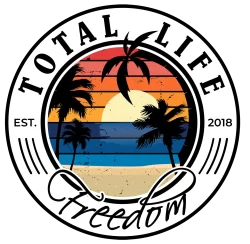Everyone has a story to tell – including businesses. Colleges are looking for students with a story. Companies are looking for workers who’s resume tell a story. And consumers are looking to do business with companies that have a story. Just look at Zappos, Amazon, or Virgin Airlines. Storytelling does a couple things. It tell people who someone is in the simplest way possible, and if done correctly, it creates a connection. Most of our earliest encounters with stories were fairy tales. The settings may have been different, but the lessons applied to the children hearing the stories as well as the characters themselves. Listen to your parents, don’t lie, share – you know the rest.
What’s your story?
Most people think their story wouldn’t be of interest to anyone. I’m just an average person/company – Good! Half of story telling is about connection. If Prince Charles wrote a biography, how many people would he connect with? Storytelling isn’t really his thing. One of the things I like about the show Shark Tank is the intros. Each of the Sharks gets about a 15 second intro which covers their rags to riches story. They all started from simple beginnings, worked smart, and made a small fortune. Or in some cases a large fortune. They are just like you and me, so we can do what they did. But what if I haven’t made it big yet, do I still have a story to tell?
Storytelling from the master
William grew up in Philadelphia in the 1940s and 50s. He had a traditional family with a mother and father and an annoying younger brother. He grew up, had a family of his own and is now has grandchildren. He’s been telling stories about his family for almost 60 years. Ironically the stories have never been about starting from nothing, becoming famous and eventually a multimillionaire. Ironically no one seems to care about that. For over half a century he has talked about children, parents and grandchildren and how they interact. It’s hard not to relate his stories. How many of us haven’t had an annoying younger brother, or kids that wouldn’t listen, or a wife or mother that got mad at you for eating cake for breakfast?
These simple stories, that everyone knows, have made Bill Cosby famous. The same people who would dread sitting through a slideshow of their relatives vacation to the grand canyon are happy to pay money to listen to Bill Cosby talk about his family. He is a master story teller. I saw him for the second time last night – along with a couple thousand other people (2 shows). My wife thought he lost his train of thought a bit, but everything was connected. The story about birthday plans for a childhood friend moved into a story about birthday plans for his granddaughter, which moved into a story about what kids are like before then can talk. This morphed into a story about how all children are lairs. And then circled back to a story about friend who was having the birthday from when they were kids.
The formula is simple as are the stories. And much like our lives, the stories intertwine and blend across time. I suspect the stories are for the most part true, but it doesn’t really matter. What matters is that they are true to us. And that’s where the connection is made. Bill Cosby has taken that connection one step further and allows us to see the humor in stories we can all relate to.
Writing your story
Bill Cosby didn’t become an overnight storytelling sensation with his stories. Over 50 years he has gone from standup in a suit, to sitting on an easy chair in sweats. It’s safe to say that the audiences have only gotten larger as he has connected with more people. It all started with writing down these stories and looking for connection in them.
Start writing your story. For you company or just yourself. You probably aren’t going to become the next Bill Cosby, but you will establish connections just like he has done. It may take a few attempts to see what resonates with people, but once you do, it may open the door to new job opportunities, new clients or new dreams.


